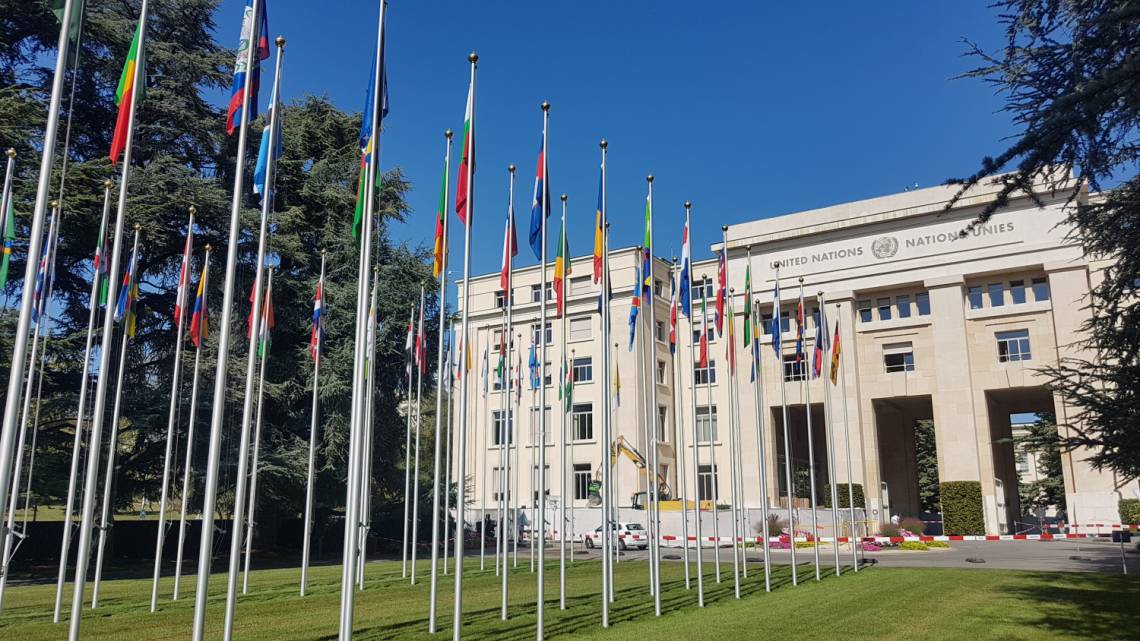Fondation Hirondelle organized, with the Netherlands Mission in Geneva and Article 19, a panel discussion on the theme of access to information. It was a side-event of the 42th session of the Human Rights Council.
On 19 September, Palais des Nations in Geneva hosted a round table discussion bringing together institutional and media actors on the theme of access to information "A right that enables the realization of other human rights". Summary of the speech by Caroline Vuillemin, Head of Fondation Hirondelle, in 3 questions:
1. Why is the right to know and be informed particularly important in fragile contexts or during conflicts?
During armed conflict, or in fragile countries, information is often lacking. We don't know what's going on, or only partially. Only rumours circulate and the fear they sets in. Sometimes, it is also a logistical or technical constraint that deprives populations of information: the area is not covered by radios or televisions, there is no electricity, no telephone or Internet networks. This may seem difficult for most of us to imagine, but half of humanity in 2019 still does not have access to the Internet.
However, without access to information, all other rights are at risk, such as the right to security in conflict. Do I have to leave my village or stay? Are there roadblocks or ambushes on the road? But also rights such as access to education or health. Are schools open? Are hospitals still operational? Finally, knowing his rights allows citizens all over the world to demand that these rights be respected, toforce the authorities to protect theses rights. This is essential.
2. How can journalists and local media work in these contexts and make access to information effective?
This is obviously difficult mainly for security reasons. But it is possible, as the Fondation Hirondelle does, to train journalists to ethics and professionalism that will be their motto and protection. It is essential that journalists have a place, a media, in which they can work without constraint or pressure: an editorial staff in which all components of society are represented thus all topics are addressed, and all points of view taken into account. The media, anchored locally, must know its audience: in which language(s) to speak, on which medium(s), at which time to reach the largest audience, etc.
With factual, balanced journalism that is close to the concerns of the population, the media can build the necessary trust with their audience, but also with the various parties in conflict in order to give them a voice and encourage dialogue.
3. Where the Fondation Hirondelle works, is access to information facilitated by new information and communication technologies (ICT)?
Yes and no! Yes, because we see some civil society organizations and "influencers" mastering these tools and communicating widely with people who have access to information in the country (an access often limited to urban areas and people with sufficient income) and within diasporas. But in these still underdeveloped countries, reality shows too often a digital gap because the vast majority of the population does not have access to the Internet and social networks. More worryingly, studies show that when technologies are available, they reinforce existing inequalities in society: men are more connected than women, urban more than rural, upper and middle class more than the poorest, etc. Finally, there is, and this is a global phenomenon, a need for media and information education to be addressed in order to support the use of these tools.
We invite you to attend our next event at the Palais des Nations during Geneva Peace Week on 6 November on the theme of Gender inclusion for Peace in the Sahel: the role of a local radio.
Register for the event




